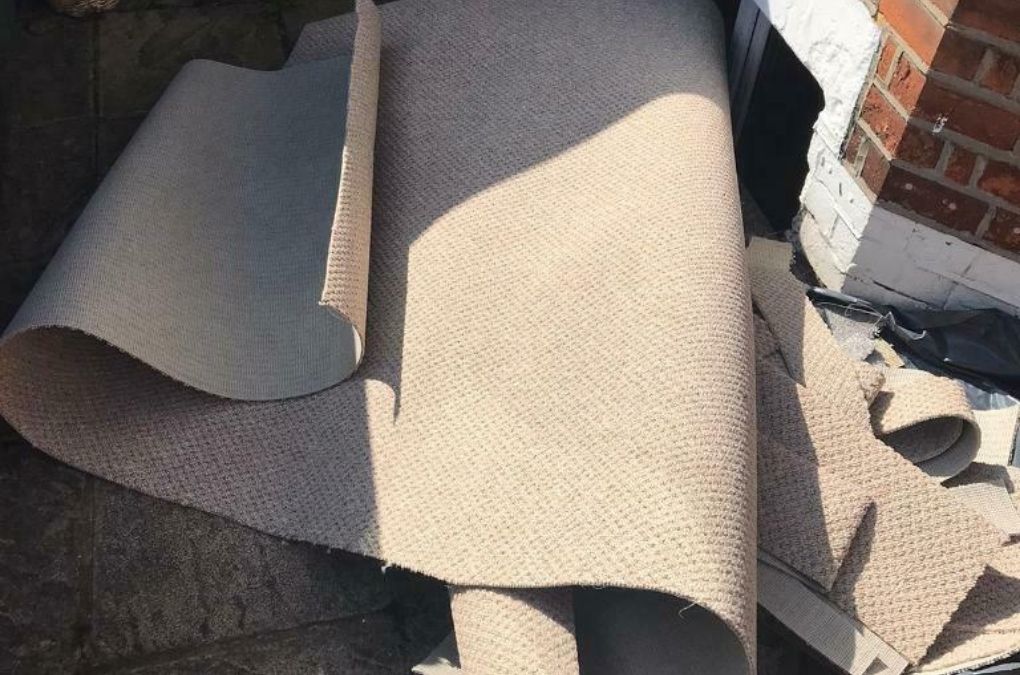Nothing beats the feeling of soft new carpet under your feet, laid across the floors of your home. We spend most of our lives walking around on the stuff, yet most of us don’t really understand what carpet is made of or how long it takes to degrade or decompose when we replace it.
Carpets contain complex fibres that can’t be broken down in a landfill. It can take years to biodegrade and also creates methane gas. Over the years, rugs and carpets have been made from a variety of materials. Nowadays, most carpets are made of synthetic materials which are cheaper and harder wearing than traditional Wool but are not always as environmentally friendly.
Since opening our Worcester carpet and flooring showroom in September 2021 we have been working closely with Reliable Rubbish Removals to ensure we dispose of our customer’s flooring waste in a responsible manner.
Reliable Rubbish Removals offers one of the most reliable waste management services in the West Midlands. Working locally, the team has over 12 years of experience and have worked with many industries to help divert as much waste as possible from UK landfill.
Reliable Rubbish Removals continues to help us responsibly remove both our flooring and carpet waste, which is commonly made from the following materials:
Polypropylene:
Polypropylene is a thermoplastic and is used in lighter-wearing synthetic carpets. Polypropylene is difficult to stain and although it can technically be recycled, it requires a special process to do so, once the pure Polypropylene has been treated, shaped and moulded to other materials to become your carpet the recycling process becomes even harder. If you were to have a Polypropylene carpet removed today by a general waste remover it would almost certainly go to landfill. Although not ideal, Polypropylene will decompose in landfills in around 30 years.
Nylon:
Probably the most common material used for carpets today, Nylon is hard-wearing, moisture resistant and relatively low cost. The huge downside to nylon carpets is that nylon is a petrochemical and is derived from oil, the same oil that is used to produce the fuel for your car.
Nylon can be recycled and is often used again in environmentally friendly products like recycled plastic skateboards. However, nylon is typically found at a landfill when it comes to DIY-ers removing carpets themselves, and once in a landfill, it will take up to 40 years to decompose.
Wool:
Wool is hard-wearing, durable, and can also be dyed easily but is quite resistant to household spills and stains making it a great material for busy family households.
Wool is often blended with synthetic materials to create an even more hard-wearing wool blend. However, the downside to this fantastic material is that it is comparatively expensive next to synthetic carpet materials. wool, however, is completely biodegradable and will be back in the ground within three to four months of being put in landfill making it a much greener solution.
Whatever materials are used to create your dream carpet, be sure to purchase yours from Dehaviland Flooring & Interiors! That way, no matter the material used, you can be sure that when purchasing from our Worcester showroom your old carpet and our scraps will be recycled or ethically disposed of thanks to the excellent team at Reliable Rubbish Removals.
For further information, visit our Worcester showroom at 32 The Tything, Worcester, WR11 1JL.

